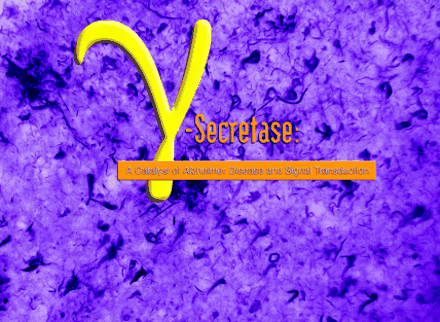γ-Secretase: A Catalyst of Alzheimer Disease and Signal Transduction
Abstract
γ-Secretase is a membrane-bound protease that cleaves within the transmembrane region of the amyloid precursor protein to generate the C termini of both major peptides that constitute the amyloid plaques found in Alzheimer disease (AD). Recent biochemical studies provide compelling evidence that presenilins, membrane-spanning proteins associated with early-onset familial AD, are novel aspartyl proteased that function within a macromolecular complex to mediate γ-secretase activity.These new insights underscore the role of the presenilins in regulated intramembrane proteolysis and could possibly lead to the inhibition of -secretase activity as a therapy for AD.

Proteolytic processing of the amyloid precursor protein (APP) is fundamental to the plaques that develop in brain tissue afflicted
by Alzheimer disease (see above). The processing of APP, not only in Alzheimer disease, but also in normal physiology, is
thus a major focus of research.
- © American Society for Pharmacology and Experimental Theraputics 2001



